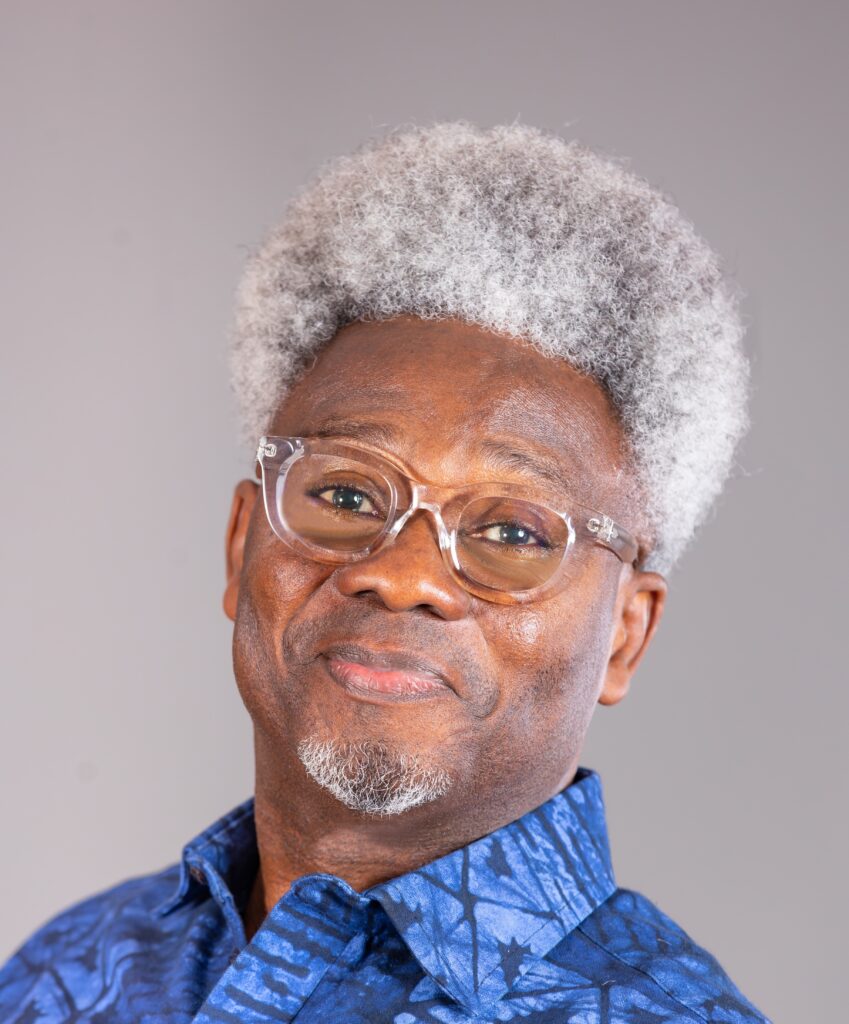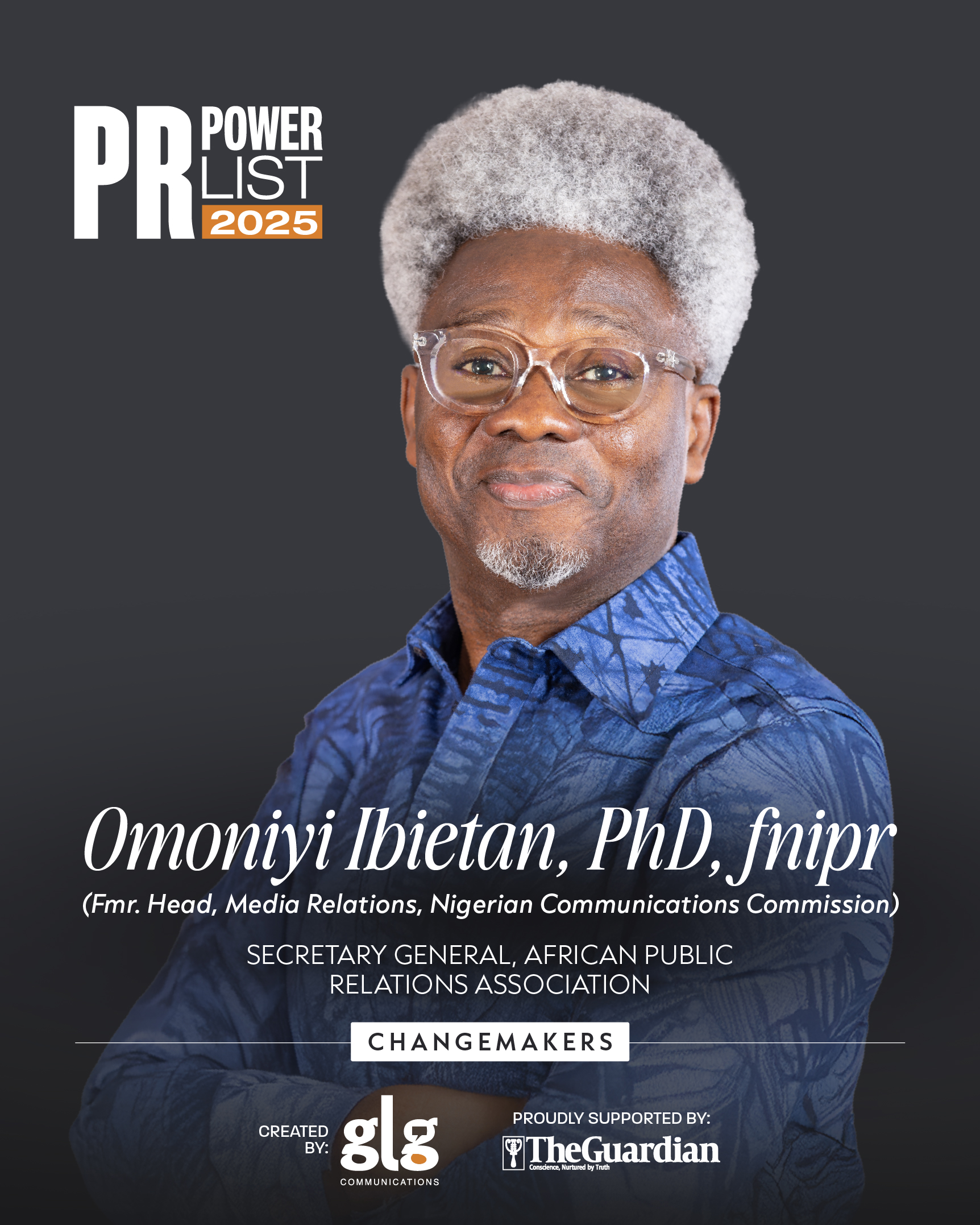Introduction
In an age where public perception shapes national policy, brand trust defines business success, and communication crises can make or break institutions, few professionals stand as tall as Dr. Omoniyi P. Ibietan.
Named on the prestigious PR Power List 2025, Dr. Ibietan is more than a public relations expert, he is an institution, a thinker, a strategist, and a shaper of narratives across Africa’s most critical communication landscapes.
In this feature, Techeconomy deploys a multimethod and multilayered lens, from career trajectory and academic depth to influence, innovation, and intellectual legacy, to unpack the life and works of a man whose presence in the public relations ecosystem reverberates far beyond press statements and policy memos.
In the beginning, Omoniyi, as he preferred to be called, landed on the national landscape as a student leader, cutting his teeth in human rights activism right from college where he led his colleagues to resist a levy imposed by the school authority. His action will cause him a suspension, which at that age he challenged in the courts and the authorities were compelled to recall him to write his West African School Certificate. He passed and enrolled for the Higher School Certificate at the then Kwara State College of Technology where he studied History, Literature and Economics. He continued activism at KWARATECH, emerging as the Secretary General of the Student Government before leaving in 1989.
Attending a journalism school (where he made a distinction in 1996) and two other universities sequentially (over a period of 10 years), he eventually graduated atop his class (BA Communication Arts) at the University of Uyo in the year 2000. The same year he was elected Chairman of the national convention of the National Association of Nigerian Students (NANS) which took place at the University of Maiduguri. The convention, otherwise called The Unity Convention, unified all hitherto warring factions of the fiery student movement which had been fractured by tendential politics and destabilization by the ruling elites. Between 2002 and 2004, he studied for the degree of MA in Communication and Language Arts at the University of Ibadan, graduating atop his class and with a PhD grade. Through it all, his commitment to defending social and political rights did not wane and he was intimately involved (working with progressive elements of the civil society) in the advocacy programmes and projects leading to the birth of Nigeria’s renascent democracy in 1999.
Layer One: The Communicator’s Communicator
For over 25 years, Dr. Ibietan has architected communication blueprints that do more than inform, they influence outcomes, foster collaboration, and restore trust.
As a key figure at the Nigerian Communications Commission (NCC), where he recently completed his tenure as Head of Media Relations, Dr. Ibietan led multi-stakeholder engagements that reshaped how the telecom regulator was perceived by both media and public.
Under his watch, digital communication strategies evolved, perception audits became routine, and media relationships turned into institutional partnerships. Before coming back to his forte (PR, media and communication strategy), he was the frontline officer for legislative relations where he set standards for the Commission in its relationship with the National Assembly, Nigeria’s bicameral federal legislature.
Dr. Ibietan’s public relations offerings were not accidental. With a PhD in Communication from North-West University, South Africa, and degrees from top Nigerian institutions like the University of Ibadan and the University of Uyo, he brought academic precision into the messiness of public opinion. Every campaign bore the hallmark of someone who understood not just what to say, but when, how, and to whom.
Layer Two: Legacy in Thought and Leadership
In scholarship and practice, Dr. Ibietan has become a leading advocate for a rethink in the fundamental, foundational, normative issues in communication, insisting that all assumptions, principles, and certitudes upon which communication management is propelled be reviewed in view of what has happened in the communication space. “The world has changed fundamentally, the media has become more pervasive, attentional resources are shrinking, Africa’s demographic capital comes with its risks and compelling us to be sensitive to audience preferences by communicating responsibly to build bridges and reduce the spectrum of divisions and potential crises. The new paradigm demands we leverage technology, evidence-based data, mindful of ethical imperatives, diversity, equity and inclusion (DEI), and new trends in measurements. We are in an era of multimedia, multimethod, multilayered communication across media systems of communication, including the context where we may require medialities and the African communication systems.” He emphasised the demands of modern communication landscape to a team of innovative journalists recently stressing why the communicator must lead every enterprise.
Dr. Ibietan agrees with the general belief that public relations is a management function. He agrees with the NIPR that public relations is both a management and leadership function, an assertion that underpinned the establishment of the first Public Relations and Leadership University (PRLU) in the world to be inaugurated by NIPR next year.

More importantly, Dr. Ibietan has recently (at Nigeria Public Relations Week in Uyo in 2025, in speeches and public presentations, as well as to his students at Rome Business School where he teaches doctoral students Advertising and Public Relations, and Media Management and Communication Strategy), that students and practitioners in communication management should revise the notion of “Engineering of Consent”, that underpinned Edward Bernays’ thesis which emphasised strong, engineered persuasive, almost propagandistic communication.
In its stead, Dr. Ibietan advocates for shared intentions, shared meanings, and collaborative communication, all ideas that underpinned human evolutionary trend in communication, riding on evidence from communication philosophers, social anthropologists, psychologists and neuroscientists such as Michael Tomasello whose almost three decades of research has laid the groundwork for a rethink of perspectives.
Thus, Ibietan is a strong advocate of stakeholder relations through engagement and communication, leading to cultivation of relationships, building trust, and ensuring communication effectiveness. As he told his students in a recent lecture, “all advertising programmes must be preceded by sufficient public relations strategies. That is a major lesson in the emergent integrated marketing communication framework. Indeed, there are new lessons and those insights should help us to elevate our practice.”
His tenure as Special Adviser to Nigeria’s Minister of Information (2005–2007) and lecturer at Rome Business School reflects a commitment to passing on his insights to the next generation of communicators. He doesn’t just lead; he lifts others into leadership.
Layer Three: Innovation and the Future of PR
One of Dr. Ibietan’s most enduring legacies is how he bridged the gap between traditional media relations and digital-first strategies. Long before it became fashionable, he was integrating social listening, stakeholder mapping, and digital content strategy into public communication playbooks.
At the NCC, his pioneering use of digital influencers, social media audits, and content uniformity protocols brought coherence and creativity to regulatory storytelling. At a time when regulatory bodies are often accused of opacity, Dr. Ibietan championed shared intentions, diversity, inclusion, transparency, empathy, and accessibility as irreducible principles in the effective sharing of meaning.
His works with Freedom House, Mastercard Foundation, and MacArthur Foundation brought global relevance to his skillset, showing that his ideas work not just in Abuja or Lagos, but also in Washington, Nairobi, and Johannesburg.
Layer Four: A Reputation Built on Integrity and Impact
Colleagues speak of him as radical but calm under pressure. Journalists praise him as available and honest. Students regard him as inspiring and methodical. Even critics admit: he does the work with panache and clinical precision.
Dr. Ibietan has collected multiple recognitions over the years, from being Best Staff at the NCC (2008 & 2011) to being the best graduating student in his class at Uyo and Ibadan where he studied Communication Arts and Communication and Language Arts respectively. But perhaps his biggest reward is the trust he commands across political divides, media spectrums, and navigating institutional barriers.
A Fitting Honour, A Continuing Journey
Being listed among the PR Power List 2025 is not just a personal achievement. It is a reflection of decades of consistent excellence, ethical leadership, and visionary thinking. In an era many believed is bereft of role models, Dr. Ibietan offers a blueprint: of how to stay relevant without being trendy, effective without being loud, and authoritative without losing empathy.
As Nigeria and Africa face rising challenges in governance, misinformation, and digital disruption, professionals like Dr. Omoniyi Ibietan are not just desirable, they are indispensable.
By celebrating Dr. Ibietan, we are not merely spotlighting one man’s journey, we are reminding the industry of what’s possible when communication is wielded with integrity, intellect, and insight.
“PR is not about spin; it is about substance,” he once said. In Dr. Ibietan, truth and candour find the most eloquent expression.

